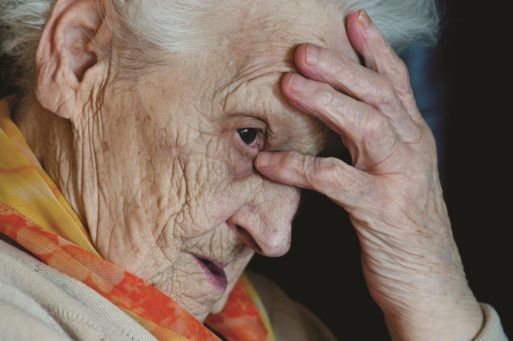
Credit: nursingtimes.net
A recent study published in JAMA Neurology posed an interesting question: Would people who know they have a higher than normal risk of Alzheimer’s disease consider physician-assisted death? The study asked people who had recently been told they had elevated levels of beta-amyloid in their brains if they would consider medical aid in dying if they became cognitively impaired. About one in five indicated that they would.
Led by Emily Largent, Ph.D., an assistant professor of medical ethics and health policy at the Perelman School of Medicine, researchers spoke with 50 people who participated in the Penn Memory Center’s Anti-Amyloid Treatment in Asymptomatic Alzheimer’s study. All had been found to have elevated levels of beta-amyloid — a protein closely associated with the development of Alzheimer’s disease — in their brains. The researchers initially interviewed the participants 4 to 12 weeks after they had been given the news. At that time, a number of patients spontaneously brought up the subject of physician-assisted death. The research team then followed up with 47 of the patients after 12 months. During the second interviews, the researchers specifically asked the patients if they had thought about the possibility of physician-assisted death.
Those who said they would be willing to explore the option cited loss of autonomy and being a burden to others as reasons why they would consider ending their lives. The majority of participants, however, said they would not consider taking life-ending drugs regardless of their condition due to religious, spiritual or philosophical beliefs.
The Problem of Capacity

Emily Largent, Ph.D., J.D., R.N.
Credit:
medicalethicshealthpolicy.med.upenn.edu
As of this writing, physician-assisted death, or medical aid in dying, is legal in seven states — Oregon, California, Hawaii, Colorado, Montana, Vermont, Washington and the District of Columbia. (It will be legal in New Jersey in August 2019.) However, all states require that the person requesting a prescription for life-ending medicines meet several criteria. Specifically, a physician must certify that they have six months or fewer to live; the person must be physically capable of self-administering the drug(s), and they must have the mental capacity to make the decision to end their lives.
The last criterion is a major stumbling block for people with Alzheimer’s and dementia. That’s because once the disease has progressed to the point where they are within six months of death, they no longer have the mental capacity to make healthcare decisions themselves.
Is Change on the Horizon?
Largent and her team are continuing their research in the hopes of exploring new ways in which people facing dementia can exert more control over their lives. As Largent told Inverse, “We’re giving people means of shaping this. We’re thinking that people, when they have advanced capacity, could make determinations about whether they want aid in dying,” she said.
Other healthcare providers are exploring options as well. For example, Dr. Barak Gaster, a professor of medicine at the University of Washington, has developed a dementia-specific advance healthcare directive for people who are concerned about cognitive decline. The document outlines the different stages of dementia and allows an individual to specify what they would want the goals of care to be in each one. Importantly, it is intended to be completed by patients in their mid-60s and early 70s who are still fully competent to make healthcare decisions for themselves.

 New Research on Physician-Assisted Death and Alzheimer’s Disease
New Research on Physician-Assisted Death and Alzheimer’s Disease



 The Healing Sound of Singing Bowls
The Healing Sound of Singing Bowls
 “Summons” by Aurora Levins Morales
“Summons” by Aurora Levins Morales














